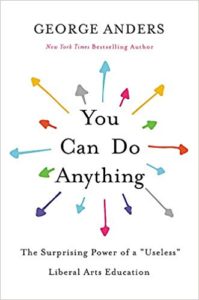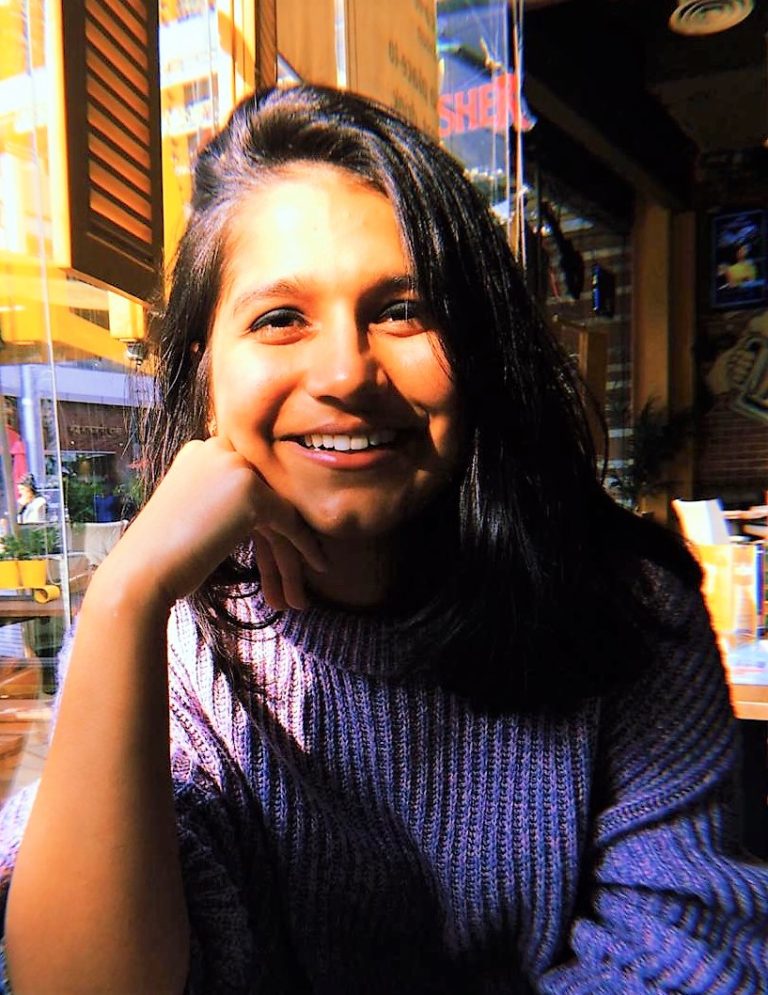
The Quiet Power of a Liberal Arts Education
January 24, 2019 Vitasta Singh
Language is powerful. It is crucial to possess the right language; otherwise, it can be difficult to express the value of our experiences. For this reason, we need a convincing vocabulary to talk about liberal arts education and convey to the outside world how degrees like English Literature and Creative Writing are beneficial in the long run.
For the longest time, I knew on a personal level that I have been learning immensely, but I couldn’t always justify this because I struggled to find the right words. Now after having spent over three semesters in pursuit of a liberal arts degree, I find myself armed with a number of facts as to support my stance. I find myself capable of analyzing exactly what skills I possess, my strengths and my weaknesses, and how my liberal arts education will allow me to transition smoothly from the world of academia to a job, including the kinds of jobs that are commonly considered to be outside the conventional realms of liberal arts. First, we need to break the myth that receiving a liberal arts education means limiting our options. The skills we gain are highly transferable and, if applied well, allow us to flourish in almost any field. “Soft skills” such as communication, teamwork, adaptability, critical thinking, empathy, and storytelling, are foundations for every organization. This might be easy to forget, but overlooking these skills can harm a business’ success. It is easy to find people equipped to do the one specific task, but we also need people who can learn new things, who can make sure that people work together smoothly, and who can create a team out of individuals. Other benefits of the liberal arts include “the ‘habit of attention…the art of expression…the art of assuming, at a moment’s notice, a new intellectual position…the art of entering quickly into the personal thoughts’—and even the willingness to accept that you might be wrong” (cited in Anders 19).
First, we need to break the myth that receiving a liberal arts education means limiting our options. The skills we gain are highly transferable and, if applied well, allow us to flourish in almost any field. “Soft skills” such as communication, teamwork, adaptability, critical thinking, empathy, and storytelling, are foundations for every organization. This might be easy to forget, but overlooking these skills can harm a business’ success. It is easy to find people equipped to do the one specific task, but we also need people who can learn new things, who can make sure that people work together smoothly, and who can create a team out of individuals. Other benefits of the liberal arts include “the ‘habit of attention…the art of expression…the art of assuming, at a moment’s notice, a new intellectual position…the art of entering quickly into the personal thoughts’—and even the willingness to accept that you might be wrong” (cited in Anders 19).
As a Literature student, I read and analyze multiple texts every week in order to comprehend their stories, tone, settings, and characters’ different motivations, as well as the underlining meanings of what is left unsaid. Then I have to express all of this in the form of well-written papers. This sort of practice helps me hone my ability to read deeply, attentively, and critically.
Art doesn’t serve us answers on a platter; it urges us to explore with curiosity, which includes asking questions and looking at situations from as many different angles as possible.
Art is humbling because there is so much of it. It reminds us that we can never know everything, but also that what we can do is be lifelong learners. “In times of drastic change,” George Anders tells us, “it is the learners who inherit the future. The learned usually find themselves beautifully equipped to deal with a world that no longer exists” (16). It is naïve to believe that we’ll be doing the same one job for the rest of our lives, especially considering the times we live in right now and how fast everything is changing due to constant technological advancements. For us to move forward in the world, it will be crucial to remember that we have to stay enthusiastic about learning. We are going to be introduced to something new every step of the way.
Studying literature also allows me to find value in the words of many artists I admire. One of my favorite writers is Neil Gaiman, who advises, “Something that worked for me was imagining that where I wanted to be —an author, primarily of fiction, making good books, making good comics and supporting myself through my words— was a mountain. A distant mountain. My goal. And I knew that as long as I kept walking towards the mountain I would be all right.”
As someone who loves writing poetry, this is advice that I always try to keep in mind while making choices, especially since there is no one, concrete route I can take to become the kind of artist I want to be. I know I want to spend a large amount of my time here in the world writing poetry while being able to support myself at the same time. That’s my mountain. The plan is to sustain myself while I work on my art, and the aim is to grow both as a poet and a human being.
I now better understand my motivation for attending university. As Kwame Appiah puts it, “What you can do and who you can be —the qualities of your skills and of your soul— are two separate questions but they aren’t quite separable. And that college was a pretty good place to work out some answers for both.” I do not see college as just a means to getting a job. That is an important aspect of earning a degree, but to me, it is more than just that. There is a difference between what one can do and what one ends up doing.
I am here because I want to learn more not only about the things I am interested in but also about my own self. I believe it is important to understand who one is and what one is capable of being in order to overcome the difference between potential and result.
College is a way for me to not only gain new experiences but also to explore how I can develop my interests in a more purposeful and productive manner.
As someone who adores stories the way I do and relies on them to comprehend the world better, I understand what Chimamanda Adichie calls the “danger of a single story.” As she puts it, “Stories matter. Many stories matter. Stories have been used to dispossess and to malign. But stories can also be used to empower and to humanize. Stories can break the dignity of a people. But stories can also repair the broken dignity.” These words have helped me realize how important the art of storytelling is and how who tells a story can change the way we perceive or respond to it. As a woman of color, I know how stories can harm minorities by caging them into stereotypes and how difficult it can be to break those stereotypes, which is why it is important for us to now more than ever take control of our own narratives. For a lot of us who have been denied agency, storytelling in any form is a way to reclaim and repossess that agency. I have come to understand that my way of taking charge of my narrative —something that was denied to a lot of people of color for hundreds of years— is through poetry. In Madness, Rack, and Honey, Mary Ruefle says, “A poem should be more interesting than anything that might be said about it…. there should still be some residual being left in the poem that goes on ticking, something like, why not say it, color, something that has an effect on your central nervous system. It is not what a poem says with its mouth, it’s what a poem does with its eyes” (57). What a poem “does with its eyes” is urge readers to look beyond the page and consider the meaning they’ve grasped from the words in relation to the world all around them. Everything about a poem asks the reader to slow down and read deeply in order to fathom the meaning behind it. The structure of a poem with all its breaks, enjambments, and cesuras also requires close analysis to make sense of what is being said while also comprehending the unsaid.
In Madness, Rack, and Honey, Mary Ruefle says, “A poem should be more interesting than anything that might be said about it…. there should still be some residual being left in the poem that goes on ticking, something like, why not say it, color, something that has an effect on your central nervous system. It is not what a poem says with its mouth, it’s what a poem does with its eyes” (57). What a poem “does with its eyes” is urge readers to look beyond the page and consider the meaning they’ve grasped from the words in relation to the world all around them. Everything about a poem asks the reader to slow down and read deeply in order to fathom the meaning behind it. The structure of a poem with all its breaks, enjambments, and cesuras also requires close analysis to make sense of what is being said while also comprehending the unsaid.
With every poem we read, we get better at translating their meanings and applying them to the lives we create. This strengthens perception. I have used the example of poetry here but the act of close reading, in general, helps us grow. It plays a pivotal role in helping people lead self-aware lives. It encourages people to question and learn. Many people are comfortable living with their beliefs, thoughts, and actions unquestioned or unchallenged, but growth demands uncertainty, exploration, and analysis. It means that the lens through which we view the world broadens and we become more tolerant, empathetic, and sensitive. We get closer to our own humanity.
My goal is to combine my love for learning with my love for art. I would also like to hold onto my inner child who is open to new experiences, finding it within herself to constantly be surprised by what the world has to offer while not being ignorant of the other, darker side of things. Art allows me to do that. For this reason, I am entertaining the idea of going to graduate school and getting an MFA in poetry. From where I am standing right now, my two best life possibilities would be to write poetry while either getting a doctorate and becoming a professor or getting a job in publishing, where the goal would be to encourage the works of people of color who lack representation and support from the publishing industry a lot of times.
Having said this, I am also well aware of chaos theory and how change can affect a person’s life. I am open to other opportunities that may come my way, and my best course of action is always going to be anything that brings me a step closer to my mountain. Above all, I think the most important lesson is that the goal is not to have it all figured out (because you never will). You should just be able to handle the journey while never losing faith in yourself.
Anders, George. You Can Do Anything. New York: Hachette Book Group, 2017.
Ruefle, Mary. Madness, Rack, and Honey. New York: Wave Books, 2012.
Appiah, Kwame. “What Is the Point of College?” New York Times. September 8, 2015.
Gaiman, Neil. “Make Good Art.” Keynote Address 2012. May 17, 2012.
Adichi, Chimamanda. “The Danger of a Single Story.” TED talk transcript. July 2009.  Vitasta Singh is double major in English Literature and Creative Writing at Purdue.
Vitasta Singh is double major in English Literature and Creative Writing at Purdue.